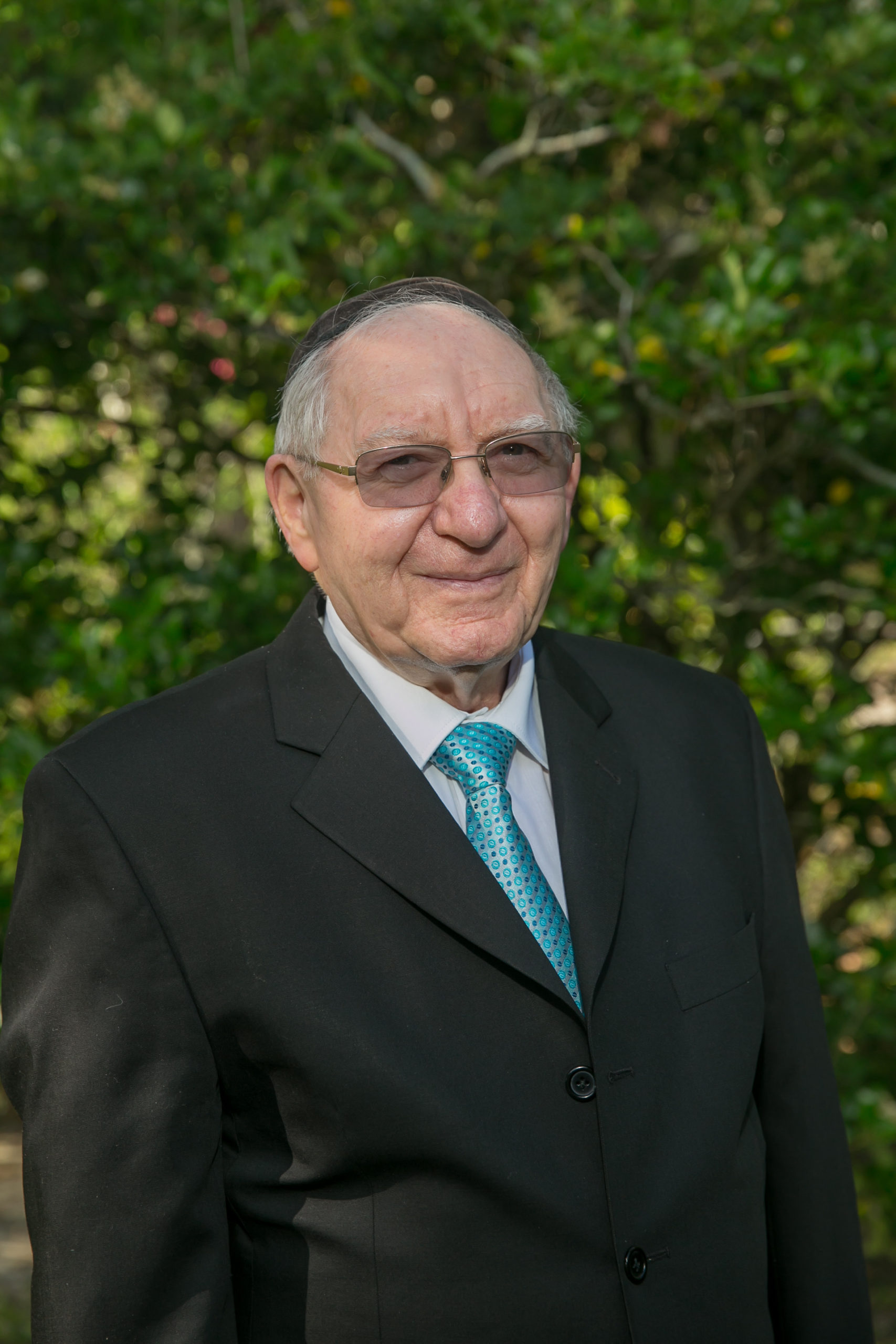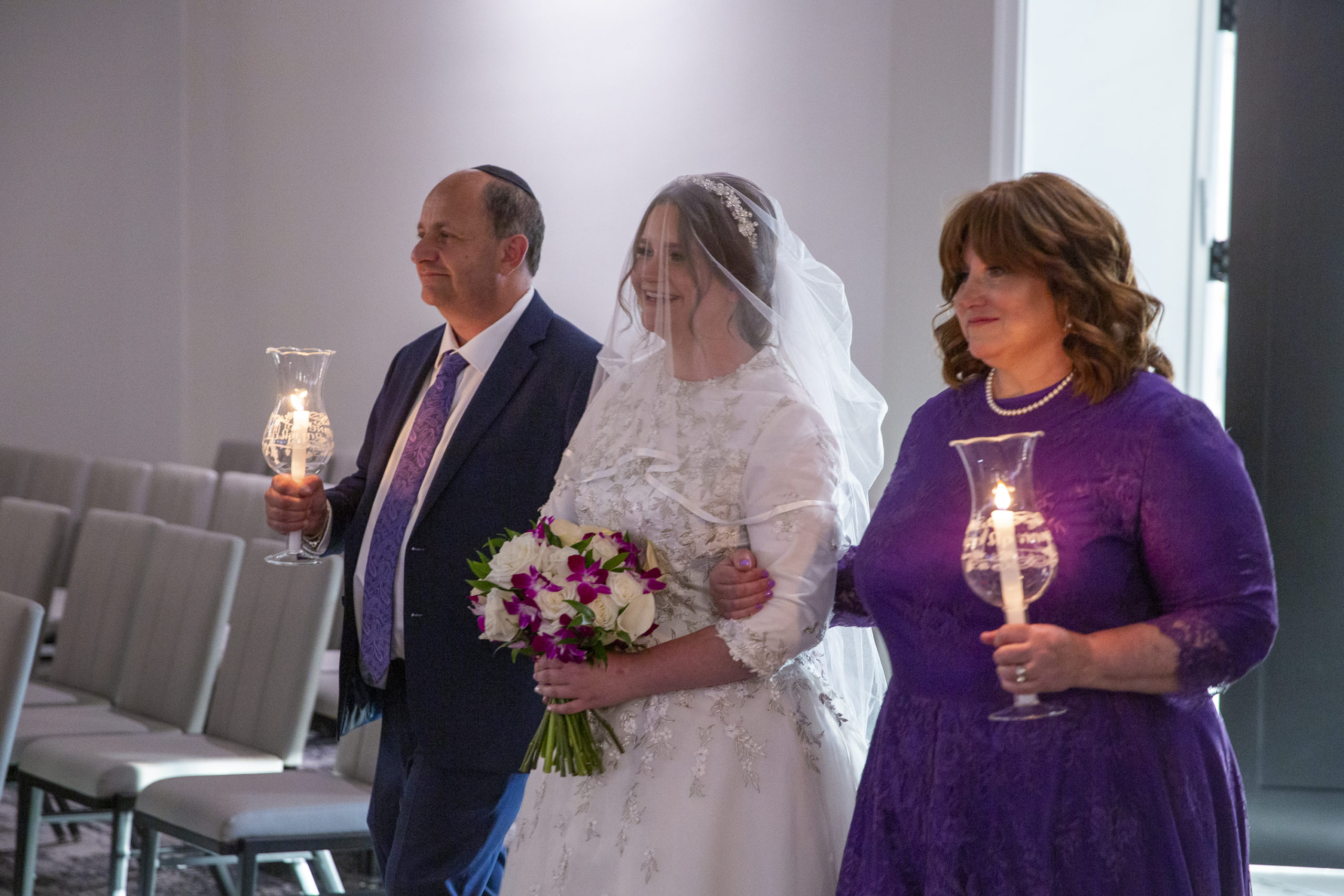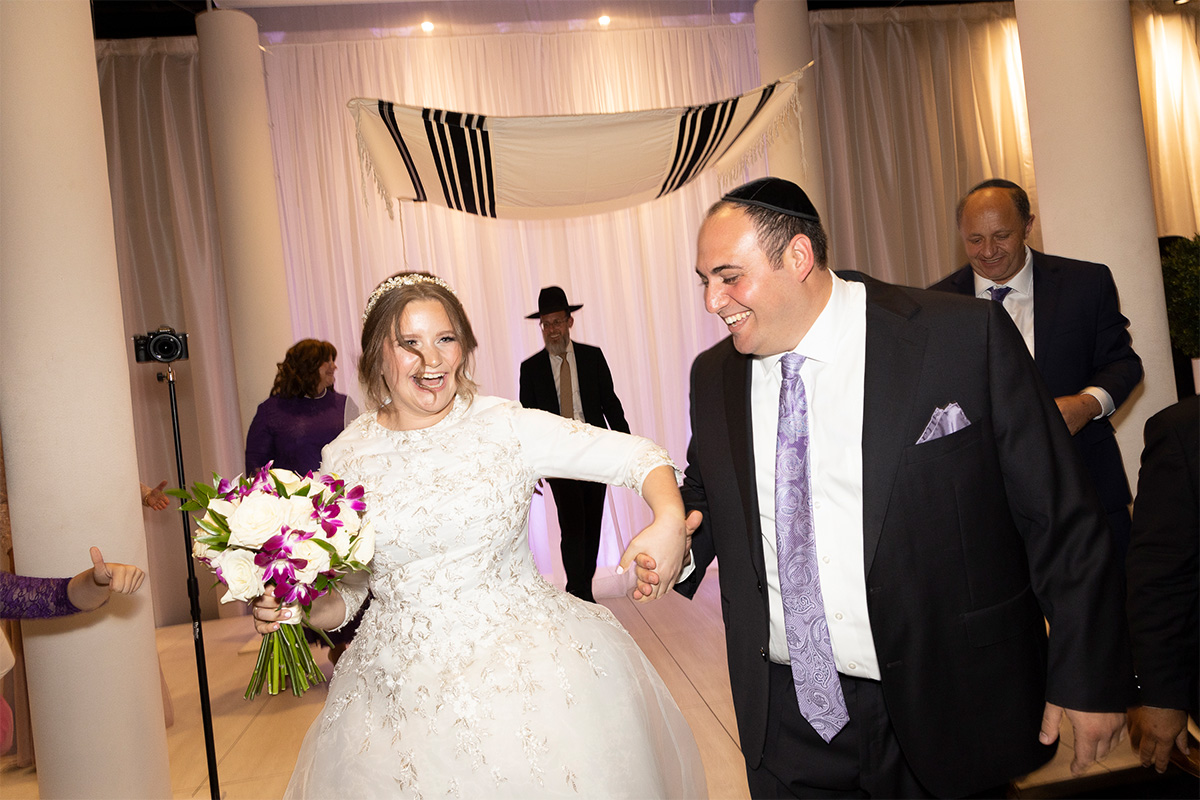I got the call on Saturday night, the month before my wedding. The past few weeks, the end of Shabbat had consistently ushered in updates from my mother, who was at my grandfather’s hospital bedside in South Africa. But I knew, before she opened her mouth, that this would be the last call. My Zeyda had died that morning. It was over. Everything blurred and stretched between my tears. Everything was still and yet, I couldn’t find my balance. My Zeyda wasn’t here anymore. He would never be here again.

I grew up used to Zeyda’s absence. He, and all my other grandparents, lived thousands of miles away in South Africa. Unlike my friends, I don’t have endless memories of my grandparents at Shabbat dinners and Passover seders; all I had were the few weeks he and my Bobbe came to visit every summer. During this time, my Zeyda taught me to read indiscriminately — he was a connoisseur of both James Patterson and Charles Dickens — and to love old musicals. The single chair in the living room was perpetually occupied by an elderly, balding man, snoring or reading. Eventually, he’d fly back home, but he always returned, even as those returns grew less frequent as he aged.
In my late teens and early 20s, the phone conversations between my Zeyda and me developed their own rhythm. We never talked about what was going on in our respective lives, never lingered on the line. Instead, he’d tease me, ask if I was helping my mother out, if I had milked the cows and collected eggs on my fictional farm, one of my Zeyda’s wholesale inventions, an ancient joke between us of unclear origin. At some point, Zeyda would warn me that he was building me a shelf, a place where I could sit and collect dust until I was ready to be married. I responded that I wasn’t near desperate enough for that sort of thing. “The shelf will just have to wait for a few more years,” I would tell him cheerfully.
Now, I was here, one month before I took myself off the shelf forever, and Zeyda was not. I stayed up late that night, attempting to Zoom into the funeral, but the connection kept shorting out. With my mom and her siblings sitting shiva in South Africa and my brothers back in the Midwest, I felt alone, unable to really mourn. My fiancé held me while I cried and sat with me while I wrote the eulogies for my Zeyda, blubbering imitations of the eloquent tributes that time and distance prevented me from hearing. At the same time, friends were booking tickets to come into town for my wedding. I didn’t have a veil yet. I was packing up my old apartment and preparing to move in to a new home with my fiancé. Grief was all around me, but I needed to find the strength to build — no, to celebrate the building of — a new life.
There is a famous section in the third chapter of Kohelet, the book of Ecclesiastics, which asserts there is “a season set for everything, a time for every experience under heaven.” A time for planting and a time for uprooting. For silence and for speaking. For dancing and for wailing. For weeping and for laughing. For most of my life, I had found comfort in this language, in the knowledge that pain is unavoidable but, in time, will make way for joy. Now, I felt lost. When my Bobbe arrived in town, just a few days before the wedding, when I hugged her as tightly as I could, I felt the glow of her love and joy, but I also felt her light flickering at the edges. Especially in the midst of celebration, the absence of her husband, my Zeyda, was palpable.
My Zeyda was born into a time where triumph and tragedy pursued each other, tangling together into the inextricable knots of history. His elders all spoke with Yiddish accents, souvenirs from the countries that tried to kill them. My Zeyda witnessed the birth of Israel, the invention of the polio vaccine, the Six Day War. A thousand tragedies and modern miracles. He was born before computers and cellphones and rock n roll. My Zeyda was raised to be strong and steadfast, to care and provide for his family. He and his brothers and father built a thriving business from the ground up. Yet, to him, there was nothing so sacred that it could not be laughed at. Not war, not illness, not death, not grief.
It is easy, caught up in communal ecstasy that follows, to forget that the smashing of a glass beneath the chuppah is not the popping of a champagne cork. It is a symbol of loss, a moment to feel absence, the absence of the Beit Hamikdash — the Jerusalem Temple — and the pain of our diaspora. In this moment of joy, one of our most basic rituals allows for, even insists upon, a moment of grief. How can we be expected to, mere seconds after this act of remembrance, discard this grief entirely and launch ourselves into song and celebration? The question stayed with me as my wedding approached. But still, I could picture my Zeyda’s response: “Well, what do you want to do instead? Stand there and mope?”

In the moments before I walked down the aisle, I looked in the mirror and saw that I was holding back tears. I could feel my cheeks pale, my pulse speeding up. I did not want to grieve in this moment, but when I thought of my future husband waiting for me under the chuppah, his kindness, his strength, his sense of humor, I thought about how much my Zeyda would have liked him. My mother took my hand. “He’s here.” I could see her eyes were also shining. “You just need to look out for him.” I could feel my father at my other side, and together, we walked towards the future.
Under the chuppah, next to my best friend, I felt surrounded by sunlight. This was the beginning of a new branch of our family, the start of a life together. I thought about Kohelet, about how we have times for wailing and for dancing, for weeping and for laughing, I thought about Zeyda and the family he built and how he inspired the family I was building. I thought about how to him, there was nothing so sacred that it could not be laughed at, that the time for gladness and misery could be the same. As the glass smashed into a thousand pieces, before our family and friends rushed up to surround us, I closed my eyes, looked out into the crowd, and found my Zeyda, simultaneously aware of both his absence and his presence. He winked, daring me to stand there and mope at my own wedding. I winked back.



